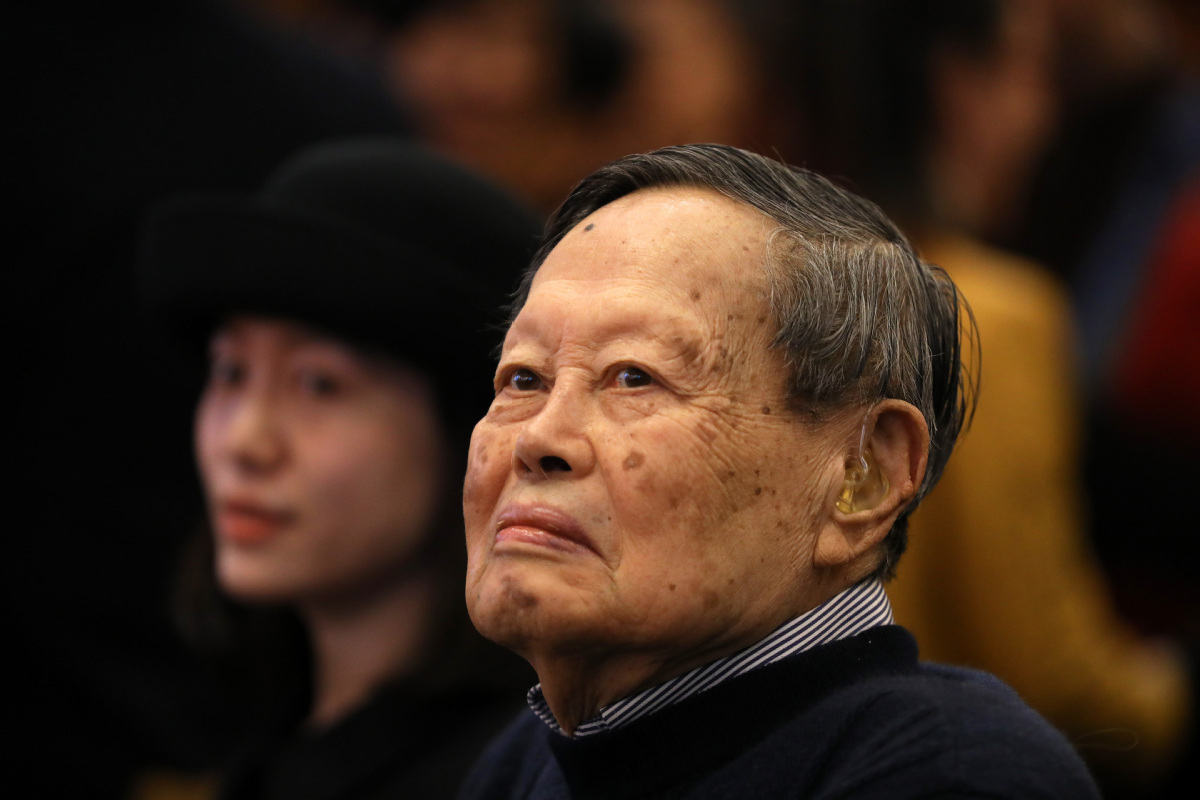A life dedicated to science and devotion to motherland


The passing of physicist Yang Chen-Ning on Saturday at the age of 103 marks the end of a remarkable era of modern science in China and a profound moment of mourning for both China and the world.
As one of the greatest physicists of the 20th century, a Nobel laureate whose insights reshaped fundamental understanding of the universe, and a devoted patriot who dedicated his later years to the advancement of China's science and education, Yang's life was a shining testament to intellect, perseverance and love for his motherland.
Born in 1922 in Hefei, Anhui province, Yang's life spanned more than a century of turbulence and transformation. His academic journey began at the National Southwest Associated University, where he studied under renowned physicist Wu Dayou. In 1945, he went to the United States to pursue graduate studies at the University of Chicago under Enrico Fermi. There, Yang's extraordinary talent soon emerged. In 1957, together with Tsung-Dao Lee, he was awarded the Nobel Prize in Physics for their groundbreaking discovery of parity nonconservation in weak interactions — a revelation that revolutionized the field of particle physics and overturned one of the most deeply held assumptions of classical physics.
Yang's scientific achievements extended far beyond that single discovery. His research spanned statistical mechanics, gauge field theory and differential geometry, profoundly influencing modern theoretical physics. His work on gauge theory laid crucial foundations for what later became the standard model of particle physics. Over the decades, Yang published a large number of papers, many of which continue to inspire new generations of scientists.
After China introduced its reform and opening-up policies in the late 1970s, Yang started visiting the country frequently, giving lectures, promoting academic exchanges, and nurturing young talent. Starting in 1986, he served as distinguished professor-at-large at The Chinese University of Hong Kong. From 1997, he served as honorary director of the newly established Center for Advanced Study at Tsinghua University (now named the Institute for Advanced Study), and became a professor in 1999.
In 2015, he renounced his US citizenship and returned to China permanently.
Yang worked tirelessly these years to foster the growth of basic science and mentor a new generation of Chinese physicists. At Tsinghua, he emphasized the importance of originality, depth and philosophical reflection in scientific inquiry. He advocated for interdisciplinary exploration and for combining the rigor of mathematics with the creativity of physics. He often reminded students that the essence of scientific research lies in asking the right questions. Even in his later years, he continued writing, reflecting and guiding students with clarity and grace. His passion for education and his humility in pursuit of truth made him a deeply respected figure not only in academia but in Chinese society at large.
Yang's patriotism was sincere and profound. He often said that the rejuvenation of the Chinese nation depended on the cultivation of talent and the pursuit of knowledge. His life embodied that belief. To the end, he remained a symbol of the unity between scientific excellence and national pride — a bridge linking China's past struggles with its modern aspirations.
On Sunday, Guangming Daily published an article by his widow, Weng Fan, titled "He Delivered a Satisfactory Answer". In her heartfelt tribute, she wrote: "He must have been very pleased when he passed away. Throughout his life, he delivered a satisfactory answer to national rejuvenation, the country's prosperity and the progress of humanity."
She quoted a poem Yang wrote when he was nearly 90 years old, On Reaching Age Ninety: My life has been a promising life, fully fulfilled; A dedicated life, with purpose and principle; A happy life, with no remorse or resentment; And a long life traversed in deep gratitude.
Indeed, Yang's life was one of ideals, struggle and fulfillment — devoted to science, to humanity and to China. As Weng movingly concluded in the article, "Every time we look up at the stars, we may imagine he is smiling down upon us from one of them. His legacy will continue to illuminate generations to come — reminding us always to seek truth, uphold virtue, and strive for excellence in service of the people and the nation".


































